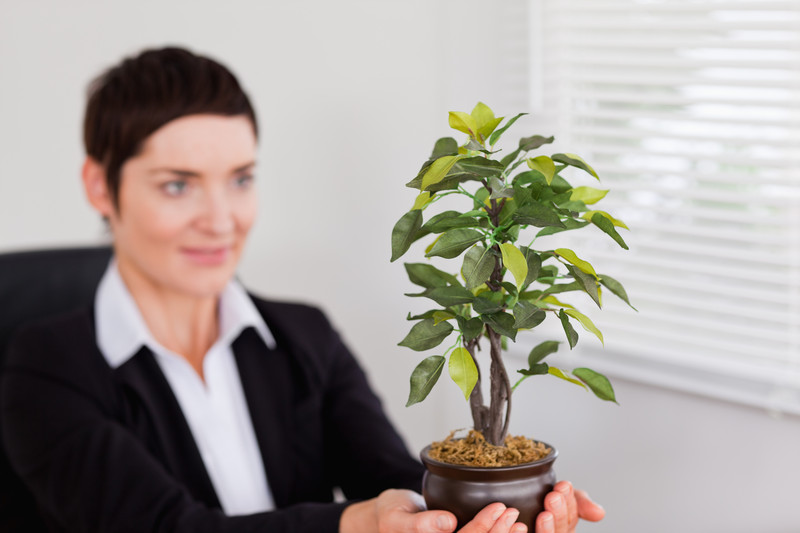Virtual Office Greenery: Choosing the Best Plants for Your Office Space
Posted on 31/03/2018
Over many millions of years, humans have become adapted to living in the outdoors. Recently, though, the time has come when people are spending an average of 90% of their time indoors. Bringing nature into workspaces has become more valuable than ever with the amount of time people spend inside. Below is an overview of why plants are important in the workplace, the best plants for small or large spaces, and tips on how to maintain the plants once they have made their way into the office.


Why Have Plants In The Office?
The human body has lived alongside nature forever, and it's not until recently that people have begun spending more time indoors than outdoors. It's known now that indoor air is far more contaminated than outdoor air, contains less oxygen, and is less conducive to health. Adding some plants to your workspace can improve the health of your workers and add a pleasant aesthetic dimension. Why not create an inviting space for yourself and your clients to enjoy by adding some of the following plants to your virtual office?Best Plants For A Small Space
Office spaces that are small, such as cubicles, will best be suited to some of the following plants: English Ivy (Hedera helix), Inch plants (Tradescantia zebrina), Jade plants (Carssula ovata), and Asparagus Ferns. Another alternative to a larger plant would be a cactus. Cacti and succulent plants, such as an Aloe Vera, require little watering and attention, but they don't provide the same fullness as a leafy plant.Best Plants For A Large Space
There are plenty of varieties of indoor plants that are ideal for the use in office spaces. Some of the more common varieties are the following: Ficus, Rubber Tree, Norfolk Pine, Heliconia, Bamboo Palm, and Corn Cane. When choosing the right plant for the office, be sure to ask for help. Ask how tall and how wide the chosen plant is expected to grow, and how much attention it will require for maintenance.Plant Maintenance Tips
When choosing plants for the office, no matter what space size is available, it's important to choose plants that are suitable for the indoors, and to understand that with little daylight, the plants will probably not flower, even if they are naturally a flowering plant. Furthermore, plants that get little natural daylight will require less water than plants that are in the outdoors. Also consider the fact that indoor plants need to be potted in potting soil that is specifically designed to accommodate indoor plants. Indoor potting soil will reduce the potential for mold buildup because of the soil's special formulation. Before choosing a plant, be sure to consult with other people in the business. It's important to know whether anyone has any pollen or other allergies. Also, ensure that there will always be someone to water the plant, in the event that someone takes an extended holiday. Have fun choosing a plant. Plants add life to an office space, and they can truly improve a working environment.Call Us Now:
0207 692 0608
Or, Request a Call Back: